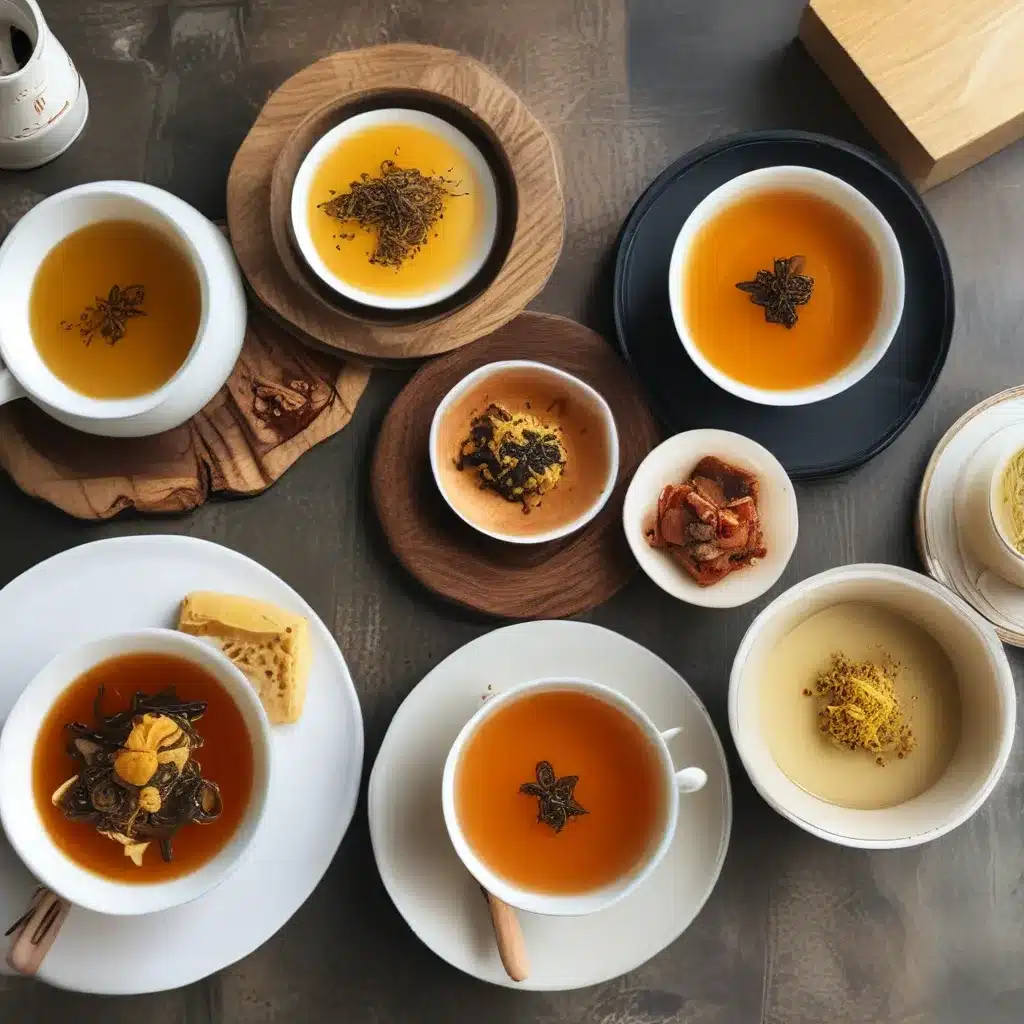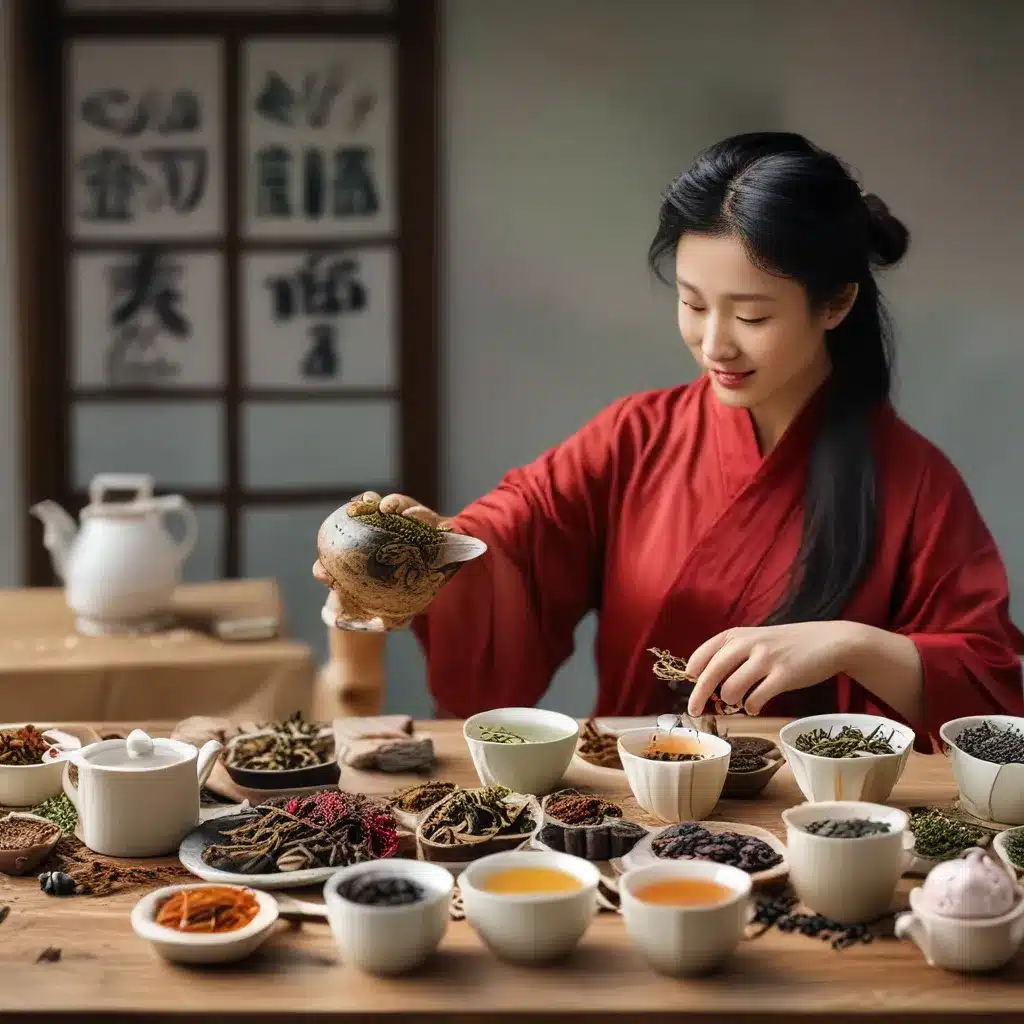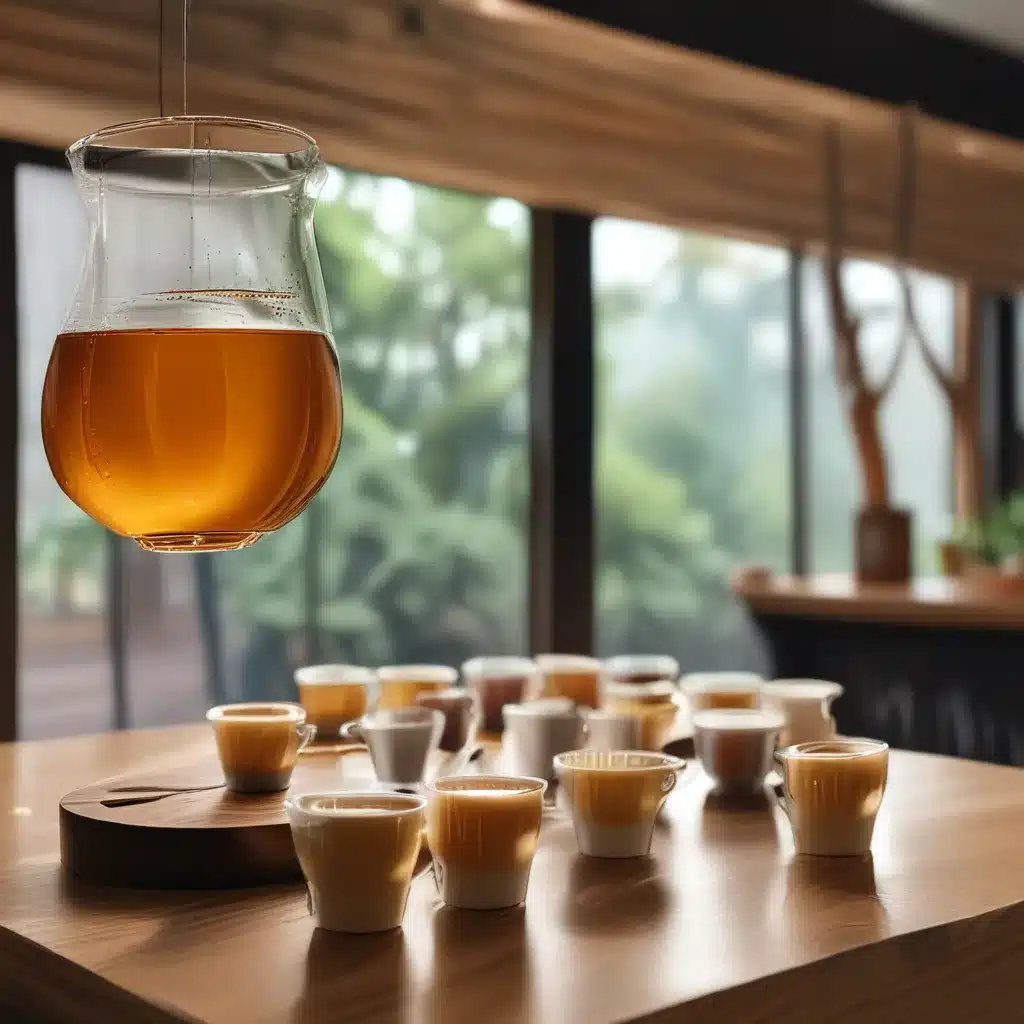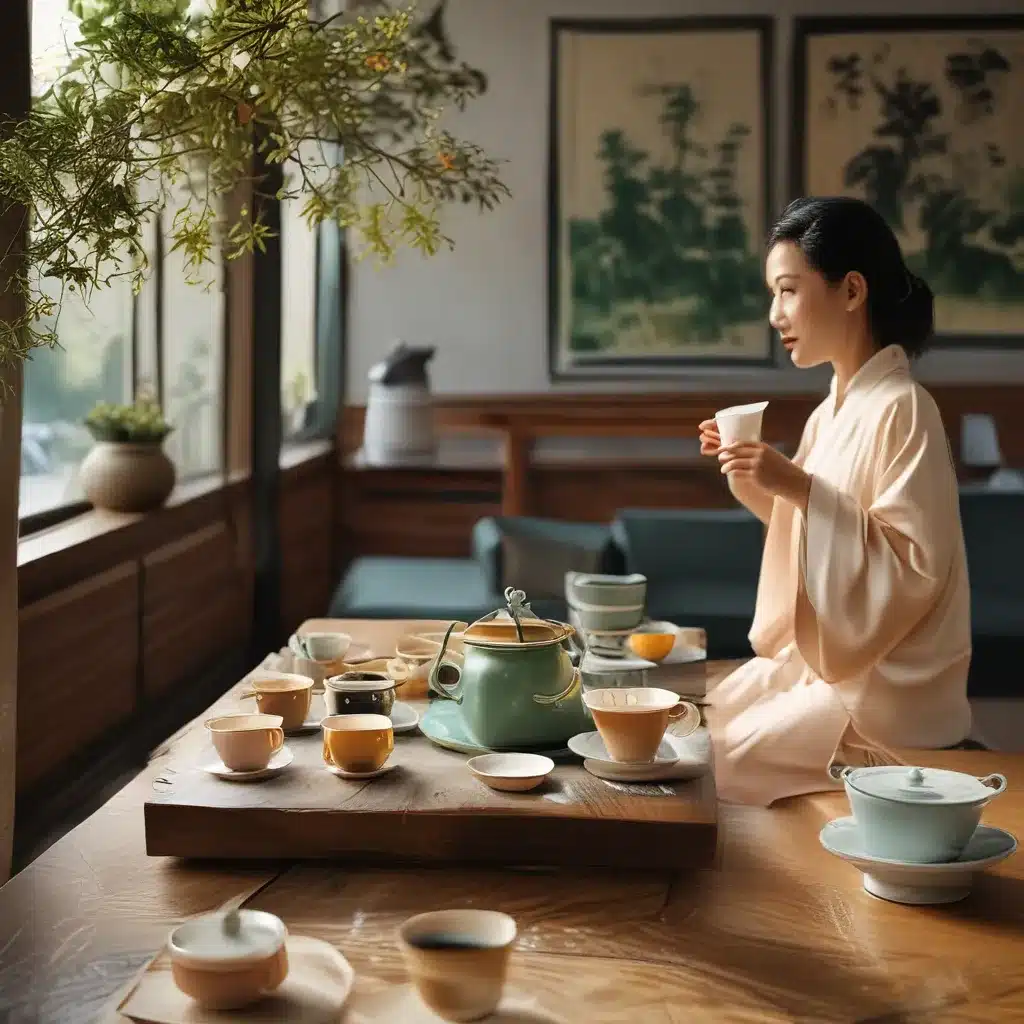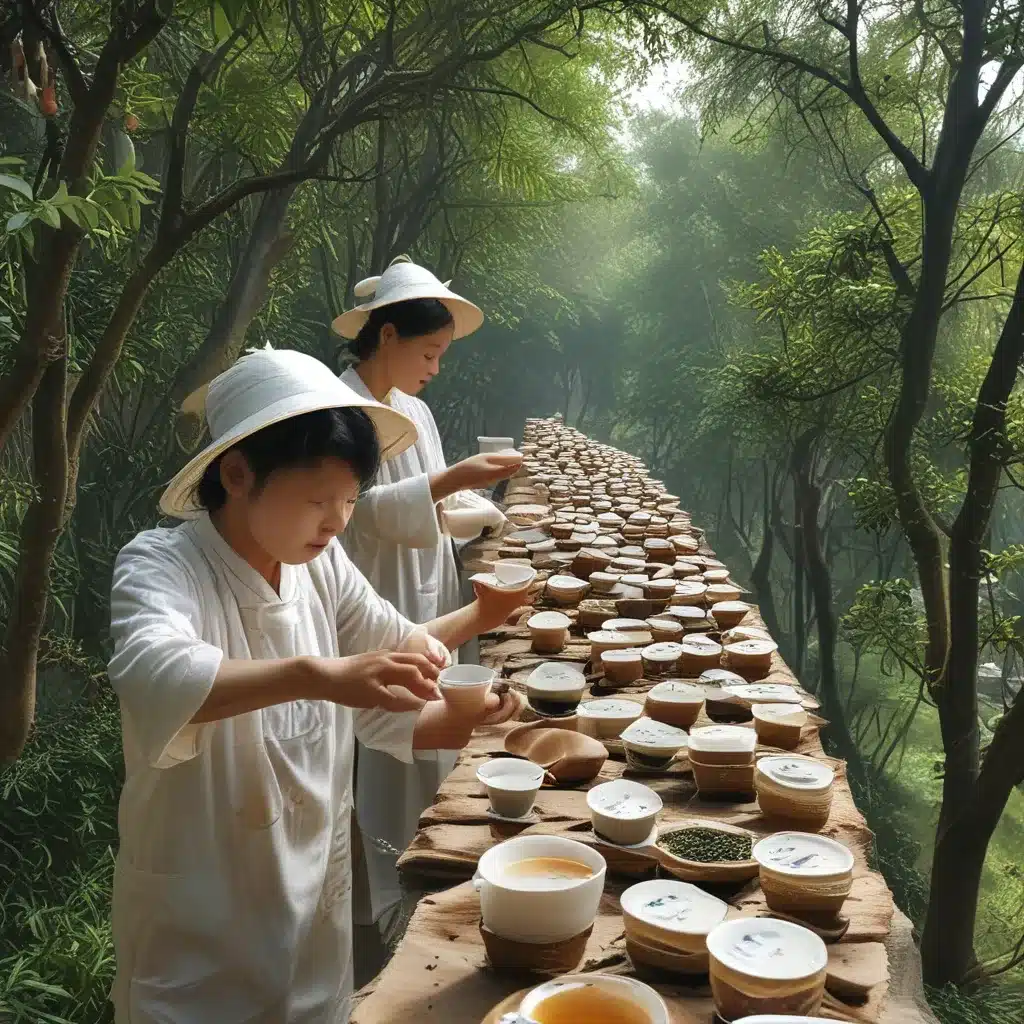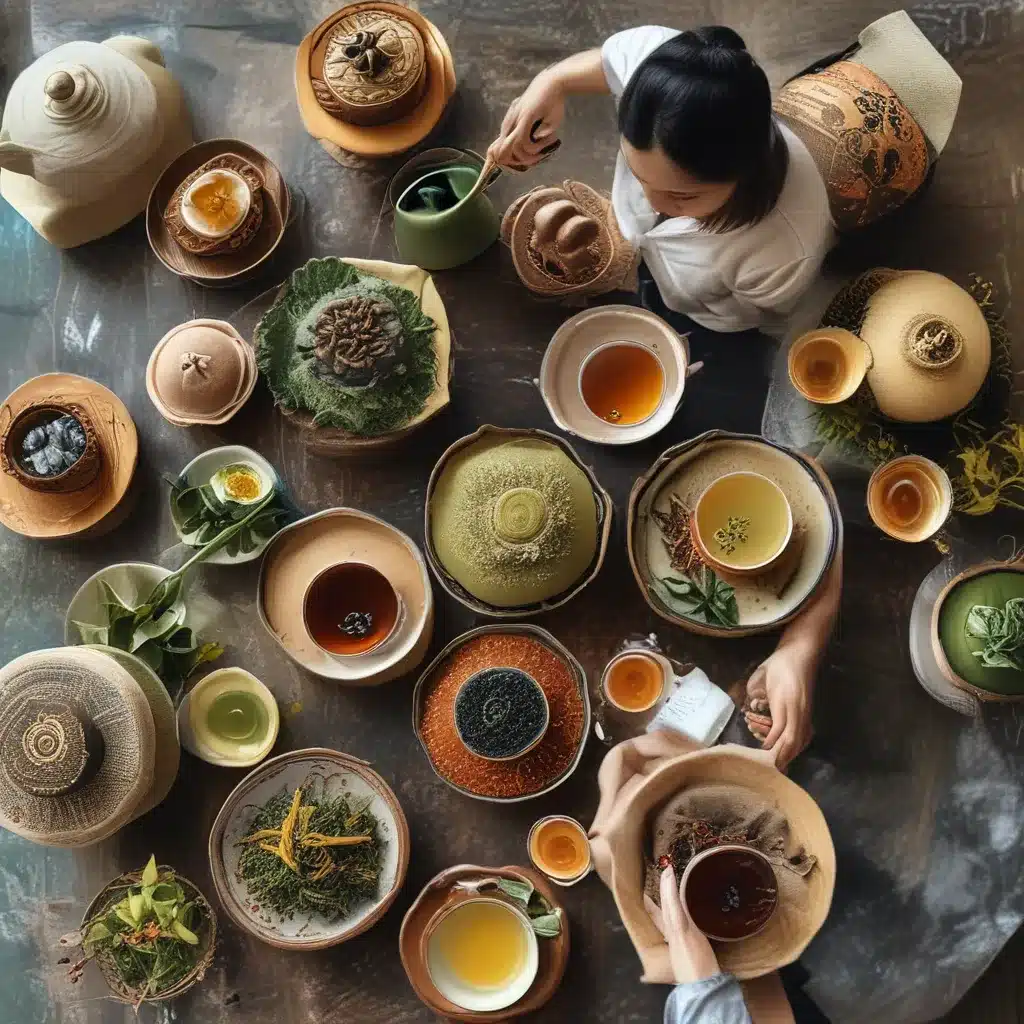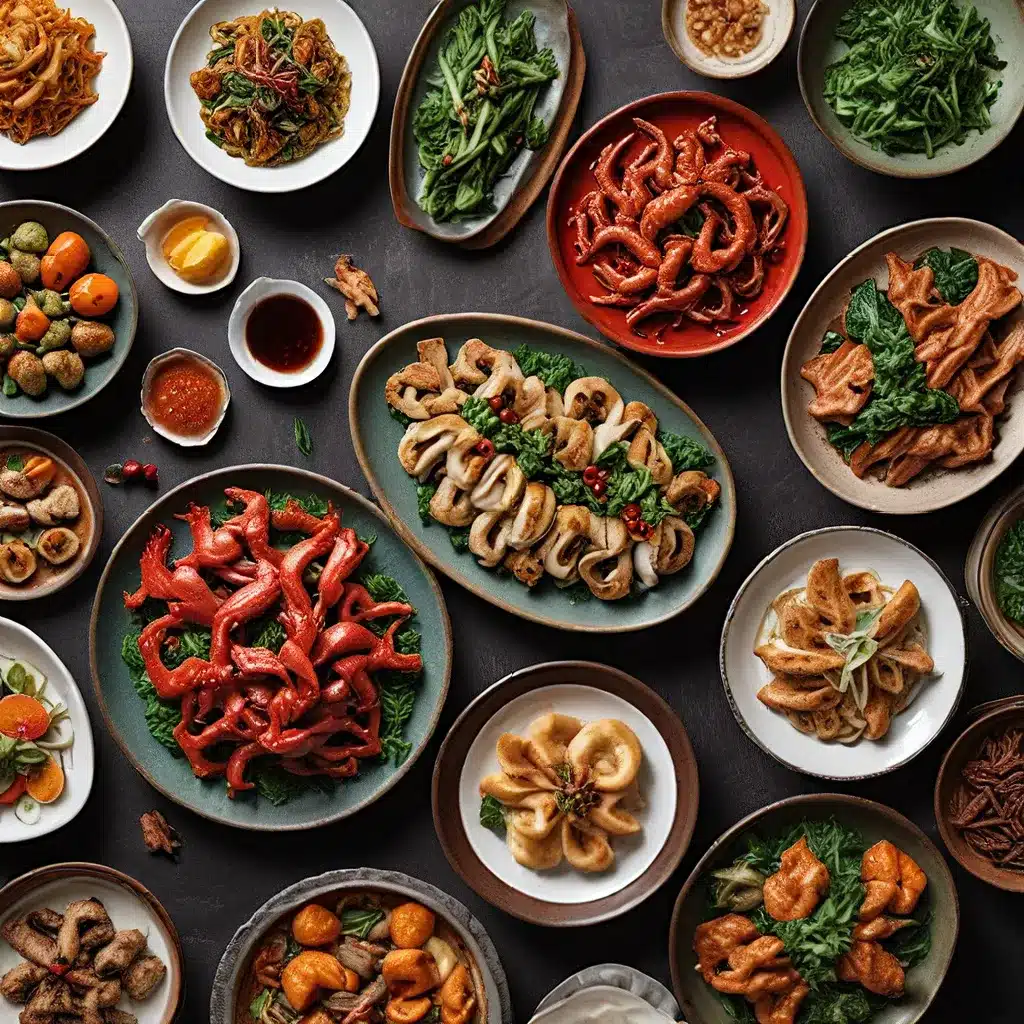
The Taste of Tradition: Discovering Fengjing’s Zongzi
As I strolled down the ancient stone pathways of Fengjing, the air was thick with the tantalizing scent of freshly wrapped zongzi. Vendors lined the streets, their nimble fingers meticulously folding the aromatic bamboo leaves around succulent fillings. This picturesque water town near Shanghai is renowned for its iconic sticky rice dumplings, and I was determined to immerse myself in the centuries-old tradition.
According to the local lore, the authentic Fengjing zongzi, called “da rou zong,” is a well-known delicacy for its perfect balance of savory and sweet. The filling, a harmonious blend of marinated pork, soy sauce, sugar, and rice wine, is neither too salty nor too cloying, pleasing the palates of even the most discerning diners. As I watched an auntie deftly wrap the dumplings at lightning speed, I couldn’t help but be captivated by the rhythmic dance of her hands – a true testament to the skill and tradition that goes into each and every bite.
Intrigued by the variety, I decided to sample a few different fillings. The zongzi with a thick slab of tender pork and a golden salted egg yolk was a revelation, the contrasting flavors and textures dancing on my tongue. The sweet version, filled with fragrant red bean paste, offered a delightful respite from the savory indulgence. With each delectable morsel, I felt transported through the centuries, connecting with the cultural heritage that has made Fengjing a beloved destination for zongzi aficionados.
Exploring the Artistic Treasures of Fengjing
As I wandered through the winding lanes of Fengjing, I couldn’t help but be struck by the town’s deep artistic roots. The birthplace of renowned artists like Ding Cong and Cheng Shifa, Fengjing has embraced its creative spirit, transforming historic homes and sites into vibrant showcases of local talent.
My first stop was the Ding Cong Art Museum, a temple of sorts for the celebrated cartoonist and illustrator. As I stepped inside, I was immediately captivated by the whimsical guide signs adorning the walls, each one a playful representation of Ding’s iconic characters. The highlight, however, was the Xiao Ding Library, a treasure trove of over 12,000 books that once graced the artist’s own study. Surrounded by the very tomes that inspired his work, I felt a deep connection to Ding’s creative process, as if I could almost hear the scratching of his pen against the paper.
Next, I ventured to the Chinese Folk Art Village, a hub of Jinshan farmer painting. Here, I had the privilege of meeting Cao Xiuwen, a leading artist in this distinctive style. Cao’s bold, colorful canvases celebrated the pastoral beauty of her hometown, with scenes of quaint bridges, flocks of ducks, and the gentle rhythms of rural life. As I chatted with her, I was struck by her warmth and passion, and I couldn’t resist the temptation to take home one of her whimsical paintings, a delightful memento of my visit.
Wandering through the ancient town, I discovered even more artistic gems, from the delightful Starbucks housed in a historic wooden building to the captivating Mao Zedong Image Badges Museum, showcasing a fascinating collection of political memorabilia. Each step I took felt like a journey through Fengjing’s rich cultural tapestry, a testament to the town’s enduring creative spirit.
Embracing the Flavors of Shanghai at One Dragon
As I savored the flavors of Fengjing, my mind kept drifting back to the exceptional cuisine I had experienced at One Dragon, a renowned Shanghai cuisine restaurant in the heart of the city. Eager to recreate the culinary magic, I decided to plan a visit to this gastronomic oasis, determined to uncover the secrets behind its mouthwatering dishes.
Upon arriving at One Dragon, I was immediately struck by the elegant yet inviting ambiance. The sleek, modern interior seamlessly blended traditional Chinese elements, creating a space that felt both sophisticated and warmly familiar. As I settled into my table, I couldn’t help but admire the attention to detail, from the exquisite porcelain dinnerware to the beautifully crafted chopsticks.
The menu at One Dragon was a veritable treasure trove of Shanghai specialties, each dish promising to transport me on a sensorial journey through the city’s rich culinary heritage. Eager to experience the full breadth of flavors, I opted for the Chef’s Tasting Menu, a curated selection that would allow me to sample the restaurant’s signature offerings.
The first course, a delicate Xiao Long Bao, or soup dumplings, was a revelation. As I carefully lifted the tender wrapper, the rich, fragrant broth spilled forth, coating my palate with a symphony of savory notes. The pork filling, perfectly seasoned and juicy, melted in my mouth, leaving me craving for more.
The next course, a steaming plate of Shen Jian Bao, or pan-fried dumplings, was a delightful contrast. The crisp, golden exterior gave way to a soft, pillowy interior, with the pork and chive filling bursting with flavor. I couldn’t resist the temptation to dip each bite into the accompanying vinegar-based dipping sauce, the sharp acidity perfectly complementing the richness of the dumplings.
As the meal progressed, I was treated to a parade of Shanghai specialties that left me in awe. The Braised Pork Belly, its layers of tender meat and succulent fat, was a masterclass in slow-cooking, the flavors deepening with every bite. The Steamed Shanghai Hairy Crab, a seasonal delicacy, was a true revelation, the delicate, sweet meat pairing exquisitely with the aromatic ginger-scallion dressing.
But the true star of the evening was the Drunken Chicken, a dish that showcased the restaurant’s exceptional mastery of Shanghainese cuisine. The meat, infused with the heady aroma of Shaoxing wine, was so tender that it seemed to melt on my tongue, while the gelatinous skin added a luxurious textural contrast.
As I savored the final bites of my meal, I couldn’t help but feel a deep sense of gratitude for the culinary artistry on display at One Dragon. This restaurant, I realized, was not just a purveyor of exceptional Shanghai cuisine, but a gateway to the rich cultural heritage that had shaped the city’s iconic flavors. With each course, I had been transported to a different era, each bite a testament to the enduring traditions that make Shanghai’s cuisine so captivating.
As I made my way back to my hotel, my mind was abuzz with the flavors and experiences I had encountered throughout my journey. From the zongzi of Fengjing to the exquisite offerings at One Dragon, I had truly embraced the seasonal splendor of Shanghai, forever etching these memories into my culinary consciousness. And I knew that my next visit to One Dragon would be just around the corner, as I eagerly awaited the opportunity to indulge in the ever-evolving delights of this culinary gem.

